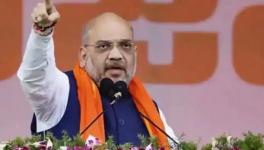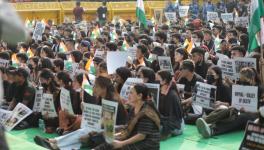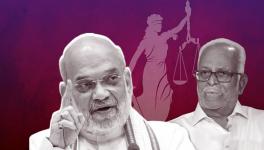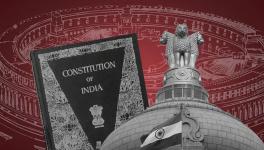‘Meaningful’ Dialogue: Is GoI Ready to Listen to Kashmiris?
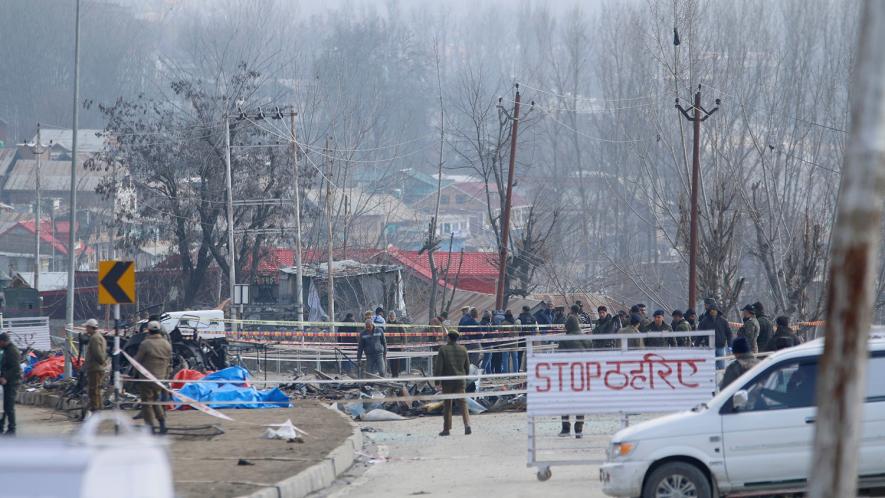
Srinagar: After exercising a muscular approach in the past four years of its rule in Kashmir, the Bharatiya Janata Party (BJP) government’s perfunctory nod to the separatist Hurriyat’s willingness to initiate a “meaningful dialogue” has put the valley in a quandary. Hurriyat's readiness for dialogue is also clear from the fact that for the first time in the past 30 years, there was no call for strike during the Home Minister's visit to the state. For over a week, there has been a back and forth exchange of gestures between separatists and New Delhi. While Hurriyat chairman Mirwaiz Umar Farooq expressed Hurriyat’s willingness to respond “positively” if a “meaningful dialogue” is initiated by New Delhi, the BJP government’s “conditional clause” has become a hurdle. Continuing with the ambiguity, Home Minister Amit Shah’s silence over the overtures of a dialogue during his two-day visit to Kashmir, suggests that the Right-wing party wants to keep the pot boiling.
In response to Hurriyat’s proposal for a “meaningful” dialogue, BJP has maintained that they have left their “doors open” for the talks but within the “ambit of Indian Constitution.” The Jammu and Kashmir BJP unit asserted that any “talks with JRL (Joint Resistance Leadership)/ Hurriyat” without pre-conditions will be “counter-productive and a retrograde step.” Such statements echo the Right-wing party’s known stance of ignoring the need for a resolution whenever faced with an opportunity of doing so.
Commenting on the recent developments, professor and political analyst, Noor Baba, told Newsclick, “I don’t know what they mean by talks. The Hurriyat has always expressed its willingness to talk and they have actually talked with governments at different times. But the question remains – talk on what and within what contours? Are they involving Pakistan? Let’s not forget that we witnessed an impasse in the past. It seems a kind of rhetoric that BJP uses during elections and is still continuing to do so. If there is any seriousness in talking, and the government of India (GoI) is willing to talk with some imperatives, then they should not search for a meeting ground. If there is a meeting ground, there is nothing to talk about.”
Dialogue – need of the hour
Since the BJP assumed power at the Centre in 2014, Kashmiris have witnessed unprecedented circumstances in the form of a muscular approach. For a majority of them, dialogue is a glimmer of hope. While local people have shown interest in the Hurriyat’s amiable offer of dialogue, they have one question to ask – Is GoI ready to listen to Kashmiris?
Speaking to Newsclick, a Srinagar resident, Irfan Ahmad, said, “We have witnessed enormous bloodshed now; something must be done to end it, and to do so, I feel that talks are the only way forward. Parties that claim to be well-wishers of Kashmiris should facilitate the process of dialogue and should play their role in doing so. If Hurriyat has expressed its willingness to talk, the Central government should also try to make something of it. At the same time, the state government should also play its role.”
In 2010, when the deadly clashes were showing no signs of ebbing, separatist leaders, representing various factions, used the opportunity to put forth a five-point formula for dialogue. These points were: Recognise Kashmir as an international dispute, start demilitarisation of the region, release political prisoners, punish security personnel involved in civilian killings and end killings, and arrests. However, despite several deliberations, New Delhi's unwillingness to accept the disputed nature of the Jammu and Kashmir issue, scuttled the dialogue process.
Fayaz Ahmed, another person from South Kashmir, said, “Kashmiris have their stand and why should we shy away from it. We can speak on it at any forum. We are ready to talk, but is GoI ready to listen? We cannot wait for the betterment of the ground situation. It is because of the prevailing reason that we are holding this dialogue. As Kashmiris, we have already put forth our stance in the form of a five-point formula. We still endorse that. Our horizons are clear.”
Lift Ban to Ensure Dialogue
Jammu and Kashmir Liberation Front (JKLF) vice chairman, Saleem Haroon, said, “If New Delhi is serious and prepared to engage with Kashmiris for peaceful settlement of the Kashmir issue, the reflection of intent must be observed on the ground. On one hand, India is imposing bans on legitimate political organisations like JKLF and Jamaat-e-Islami (JeL), while as on the other hand, they are trying to hoodwink the international community by staging an impression of dialogue.”
The clampdown on separatist groups, compounded with the ban on JKLF and socio-political organisation, JeL, and arbitrary arrests by the Centre, have precipitated matters in Jammu and Kashmir. The underlying question remains: How will the talks ensue without the participation of all stakeholders?
A JKLF leader, on the condition of anonymity, said, “We have not received any official communication in this regard. Yaseen Malik has always represented JKLF in such platforms. Without him, there is no point in holding any discussion. They cannot hold a dialogue with prisoners. Only free people can talk. We are still waiting for a comment from Amit Shah. We can only talk after the government approaches us,” he said.
Get the latest reports & analysis with people's perspective on Protests, movements & deep analytical videos, discussions of the current affairs in your Telegram app. Subscribe to NewsClick's Telegram channel & get Real-Time updates on stories, as they get published on our website.















